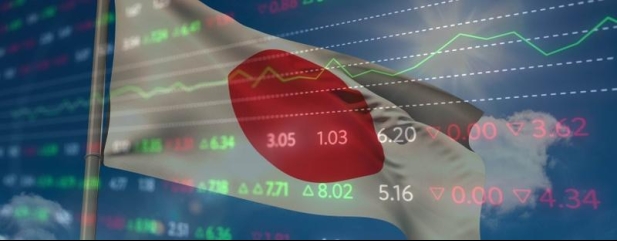Attention is likely to focus on what central bankers say not what they do

It seems wherever you look at the moment, the economic data is coming in hotter than the market expects.
Take US producer prices for February, which last week rose by 0.6% on the previous month, or double the consensus forecast, due to a surge in energy prices which in turn drove a larger-than-estimated increase in the price of goods.
Economists were quick to ascribe the rise to difficulties in adjusting the data for year-end price increases and the S&P 500 index even made a new intraday high, its 17th this year.
Even recent Chinese data has surprised positively, something few traders would have bet on, with exports, factory orders and retail sales proving better than expected.
Chinese shares jumped in response as hopes rose the economy could be on track to meet the government’s ambitious 5% GDP growth target for the year.
Japan this week ended its eight-year experiment with negative interest rates after annual wage hikes by big firms stoked expectations inflation would hit the central bank’s 2% inflation target and stay there.
The nation’s biggest businesses agreed to increase wages by slightly more than 5% this year, the sharpest rise in 33 years, meaning there is no need for the Bank of Japan to wait till April to raise rates, which was the official plan.
While no-one is expecting the Bank of England or the Federal Reserve to raise rates this week, the tenor of the conversation has visibly changed from moving much closer to rate cuts to increased caution.
As MFS Investment Management chief economist and portfolio manager Erik Weisman observes, the market is ‘a hungry beast’ and investors ‘will want to get much more insight from chair Powell’s press conference as to whether the last two months of higher consumer inflation data risk undermining the overarching narrative of gradually weakening inflationary pressures’.
Important information:
These articles are provided by Shares magazine which is published by AJ Bell Media, a part of AJ Bell. Shares is not written by AJ Bell.
Shares is provided for your general information and use and is not a personal recommendation to invest. It is not intended to be relied upon by you in making or not making any investment decisions. The investments referred to in these articles will not be suitable for all investors. If in doubt please seek appropriate independent financial advice.
Investors acting on the information in these articles do so at their own risk and AJ Bell Media and its staff do not accept liability for losses suffered by investors as a result of their investment decisions.
Issue contents
Exchange-Traded Funds
Feature
- Understand whether Super Micro Computer is an investment flop or technology great
- Do markets actually care who wins the US election in November?
- Construct an ISA portfolio: Put the building blocks in place for investment success
- Fear of missing out has supplanted fears of a market sell-off
- Find out how London Tunnels plans to create one of the biggest tourist attractions in the capital
Great Ideas
Money Matters
News
- Springfield Properties hits new highs as confidence recovers
- Focusrite shares nosedive after company warns on sales and earnings
- Scottish Mortgage tackles NAV discount with £1 billion buyback while Witan invites new managers
- Nvidia unveils new ‘superchip’ at its first conference for four years
- Could litigation headaches lead to a breakup of Reckitt Benckiser?

 magazine
magazine








